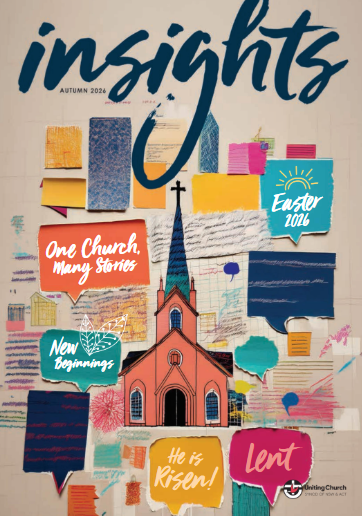It’s been reported that two out of three Australians think that religion does more harm than good in the world. That’s not encouraging news at a time when there are questions being asked about whether or not the various tax exemptions and privileges that religious organizations enjoy in Australia should be wound back – or even dispensed with.
But the Ipsos Poll that this report was based gave mixed messages about Australians and religion. While 63% agreed that religion does more harm than good in the world, 84% agreed with the statement, “I am completely comfortable being around people who have different religious beliefs than me”. On the one hand there is skepticism about the value of religion and on the other hand, there is high levels of toleration for religious diversity. So, what might this poll be telling us about Australians and their religions?
It’s worth thinking about how a poll like this works. In this case it was a telephone poll of more than 17,000 people across 23 countries. There would have been an attempt to get balanced representation but, even so, it could have involved only a very small number of Australians. Probably fewer than 1000. Also, those being polled were simply asked if they agreed or disagreed with a series of statements such as “My religion defines me as a person” (27% agreed) or “Religious people make better citizens” (25% agreed). So when some hundreds of Australians agreed with the statement “Religion does more harm than good in the world”, it’s not at all clear what they were actually thinking. It would have been a range of things. Certainly they would not all have had the same reasons for agreeing with the statement.
Nonetheless, it’s a worthwhile exercise to think about what some of those things might have been. What harm does religion do?
Some may have been thinking about religious bigotry and the harm that does in some families and communities. Australia has a sorry history of sectarianism – particularly of bitter conflict between Protestant and Catholic people. Thankfully those days are behind us now, but it was still a very real part of Australian society when I was growing up. Some people might have been thinking about religious extremism or about religiously motivated conflict. Some might have been reflecting on the Royal Commission on Institutional Responses to Child Sex Abuse.
But about a third of those Australians who were polled did not agree with the statement. They thought that, on balance, religion does not do more harm than good. They might have even thought that religion did more good than harm (but we can’t know that). So what good might they have thought religion does?
If they practice a religion themselves, they probably do so because they find or believe that it has some benefit for them. There are many studies now that associate religious practice with improved mental health and well-being. They might have been thinking of the community life and pastoral care that’s made available to them in their faith community. But even the Australians polled who do not practice a religion themselves might have been thinking of the caring services that religious communities offer. Christian congregations run drop in centers, op shops, playgroups etc. Most religious organizations run schools, community services, hospitals etc. For example, UnitingCare Australia is a network of some 1600 sites with 40,000 employees and 30,000 volunteers. Their impact for good on Australian society is huge.
In the light of the Ipsos Poll a journalist asked me whether religion “should be trying to redeem itself” in the eyes of the Australian public. I replied that I thought not. The place of religion in Australian society has changed dramatically in recent decades. The proportion of Australians participating in a religion is now smaller, and the religious groups that Australians are involved in is now much more diverse. The community no longer automatically look to religious representatives for moral leadership – or even for rites of passage such as weddings and funerals. In this situation it’s important that religious organizations don’t pretend that nothing has changed, and don’t try to steer things back to the way they once were – if that’s what “redeeming” themselves means.
Instead, religious organizations need to get on with doing what they do – developing communities, practicing their faith, serving their own members and the wider community at real points of need. And they need to do what they do with integrity, fairness and transparency. That will be more than enough for Australians.
Rev. Prof. Andrew Dutney is a Uniting Church minister who also runs the blog Backyard Theology.






2 thoughts on “Does religion do more harm than good?”
Politics is by far the biggest evil in our society and virtually every society in the history of mankind. When religion is taken over by political activism then we see a particularly acute form of evil arise, because The Big Guy in the Sky is one of the few people who have the authority to tell us not follow our moral conscience. But the real root of all evil the political activism hiding below the religion.
Institutional religion, not personal faith, is on the nose